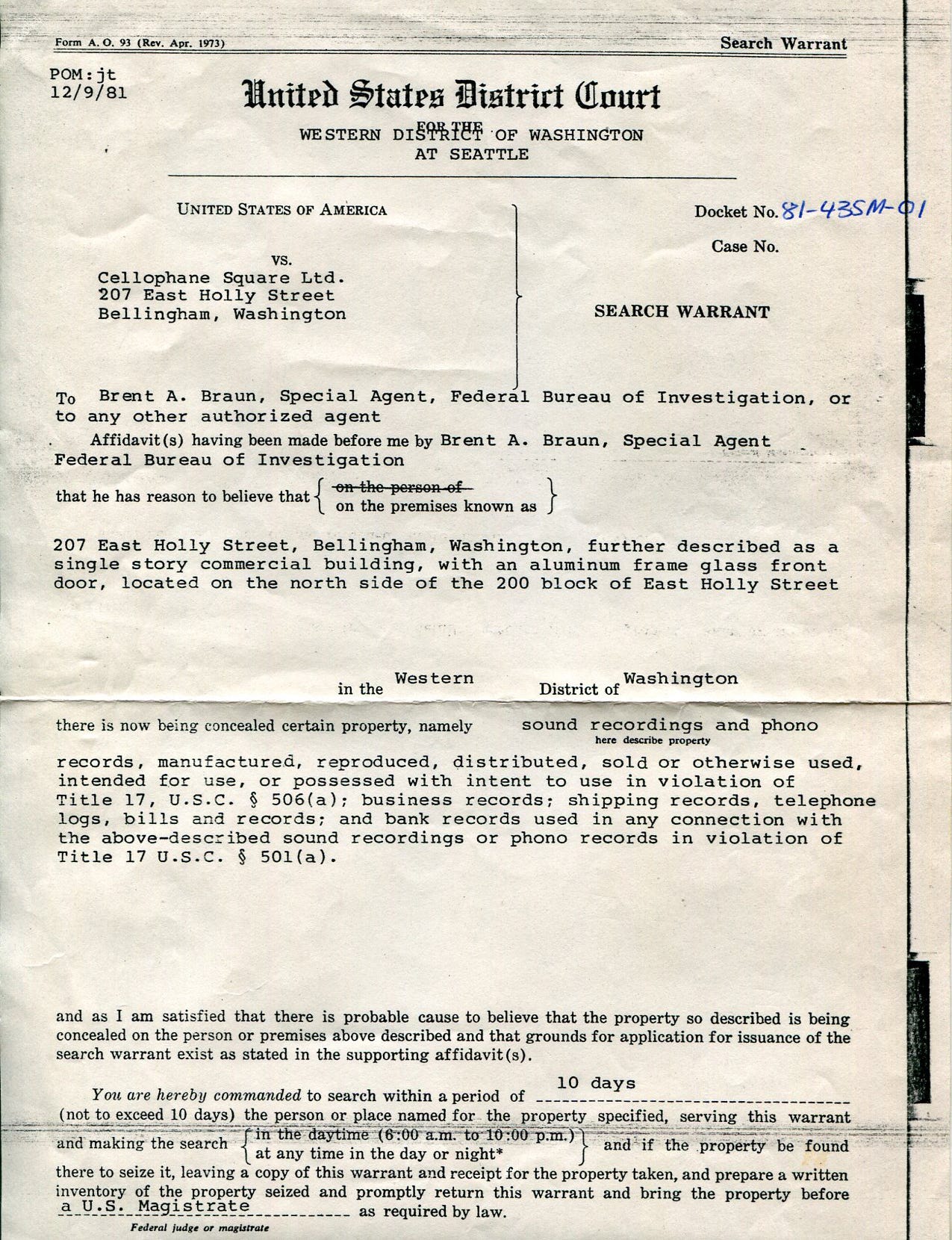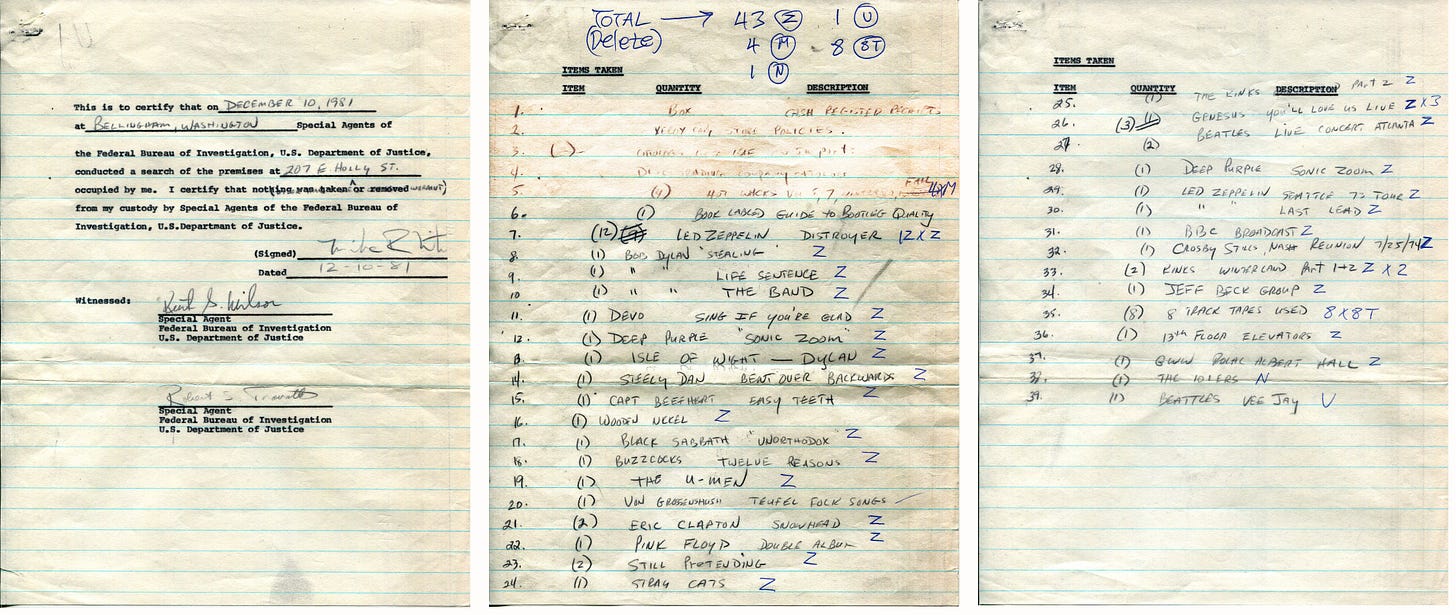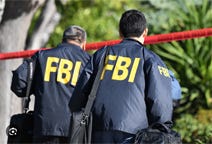The Record Store Years 31) The Bootleg Years Pt. 2: More Hippie Capitalism and Busted by The Man
A memoir of 25 years (1975-2000) spent working in the world of records & music in Seattle, with occasional side trips into writings on Led Zeppelin and other adventures from my musical life
The ordering process for bootlegs was, not surprisingly, somewhat hit and miss. Cellophane Square had one main supplier in the early days who would send out printed lists of the titles available as an order form via snail mail. Two bucks for single LPs, four for doubles. We would enter the number of copies of each title we wanted next to the description, mail the form back, and the product would arrive C.O.D. a week or two later, payable by company check. Suppliers would come and go and sometimes these orders were placed by phone, but they were always shipped C.O.D. and the specifics of their provenance never revealed.
There was one guy who did the traveling salesman thing for a while. We only knew him by his first name and he would show up unannounced with product in the trunk of his car which he’d parked on NE 42nd street in front of or near the store. I’d go out to the car, assemble an ‘order’ from the multiple copies of various titles he had in boxes, and then run down the street to cash a store check at the bank while he waited for payment (cash only, please!). He’d usually give us a ballpark timeframe for his next visit and take note of what was selling the best, and then he’d be off again, not to be seen for several months. Hippie capitalism at its finest, ethics and legalities be damned!
Though Cellophane Square never got involved in the actual production of bootlegs, our competitor Wes dabbled in producing some low-quality product around 1979, and the attention this drew may have contributed to the inevitable busts of both his stores and ours in 1981. There had been increased talk in the industry at that time about cracking down on bootlegs, as they were getting more and more popular and elaborately-packaged, and big artists like Springsteen were complaining about the lost revenue and inferior quality of many of them.
Above: The search warrant served by the FBI at the Bellingham Cellophane Square on December 9, 1981.
For some reason when the Feds hit us (and it was indeed the FBI, blue jackets & all), they decided to raid the Bellingham store. I was at my desk in the office of the U-District store and took a breathless call from the Bellingham manager – “. . . The FBI just showed up with a search warrant and made us clear the store of customers and lock the door! They’re confiscating bootlegs but I got a chance to grab a few stacks of LPs and hide them before they noticed!”
According to the staff who stood by and watched the product being boxed up, the law-enforcers were characteristically gruff in their demeanor but not particularly well-educated for the task at hand. There was no inherent music or record knowledge present, and they had apparently been instructed to look for albums with ‘plain white jackets’ and were confused by the deluxe color cover LPs peppered through the bootleg section. They took some of the Zeppelin Destroyer sets but left a big stack that my store manager had ‘hidden’ under the display rack in the heat of the moment, and they left a lot of the color cover titles because they didn’t ‘look like bootlegs’. Conversely, they also went through the regular racks and found several suspicious-looking albums with white covers that they took even though they weren’t bootlegs.
Spot the difference: Above: These are Bootlegs. Below: These are not.
Despite their ineptitude, the FBI confiscated about two thousand dollars worth of product from us that day. It was a dramatic ending to a gravy train that we all knew could jump the tracks at any time. The store owners and their lawyer dealt with the consequences, which were minimal - basically just a warning to stop selling bootlegs, which we immediately did, or face criminal prosecution. Losing the product hurt a bit but there was no additional fine or penalty assessed to the company. Wes TBM didn’t fare as well in his [concurrent] bust, no doubt because he was involved in manufacturing – in addition to some steep fines, word on the street was that the Feds also confiscated his Cadillac, and a lot more product than they got from us.
The event turned out to be something of a turning point for the Cellophane Square stores, moving us more towards the burgeoning indie rock scene and the stocking of new legitimate product, and lessening the emphasis on collectibles as the initial boom of that market levelled off in the new decade.
NEXT: Side Trip: Bootleg CDs – The Story of Two Led Zep Stunners from 1991
Below: The type-written form and itemized list that the FBI created for our raid. Worth noting:
The first sheet indicates that nothing was taken that wasn’t described in the search warrant and had to be signed by the store manager.
The first things listed are not LPs, but ‘Hot Wacks’ bootleg guidebooks that we also sold, and apparently a printed list of ‘store policies’.
The U-Men and Von Grossehshush albums mentioned had white covers, but were not bootlegs, and the Beatles ‘Vee Jay’ was technically a pirate as opposed to a bootleg* – though still an unauthorized release that at least one of the FBI hacks was aware of.
The notations in blue ink at the top of the list are mine, indicating how many pieces were taken and the store inventory product codes for each. I can’t recall why they took 8-Track tapes, but they were probably also pirates.
* The distinction being: A pirate is an unauthorized reproduction of an existing legitimate LP, and a bootleg is a singular album of unauthorized material that was never intended for release. Introducing The Beatles on Vee Jay was a widely-pirated album, according to some accounts produced by an organized crime operation that made millions pirating rock albums in the late 1960s. Pirated albums were made to look as close to the original release as possible, but a trained eye could pick out certain details to identify a fake from the real thing, such as blurry printing or faded-looking colors. Some were skillfully done, but I can usually still smell a pirated LP from that era a block away.









And my first Mangrove post (Gaelic Park 8/26/71) after I moved from blogspot to the Substack platform. It includes a few details of how the Dead's manager, Sam Cutler, went after tapers and folks selling bootleg albums in 1971. Another great field recording, this one produced by Marty Weinberg. https://zencowpoke.substack.com/p/grateful-dead-gaelic-park-bronx-ny
Great piece, Hugh. I had a bunch of Grateful Dead bootleg LPs in the 70s. My favorite was the 8-6-71 Hollywood Palladium show, with the charming pig-nosed Garcia on the cover. I wrote about that show a year or so ago. Sweet Rob Bertrando field recording.
https://open.substack.com/pub/zencowpoke/p/grateful-deadhollywood-palladium?r=7iwom&utm_campaign=post&utm_medium=web